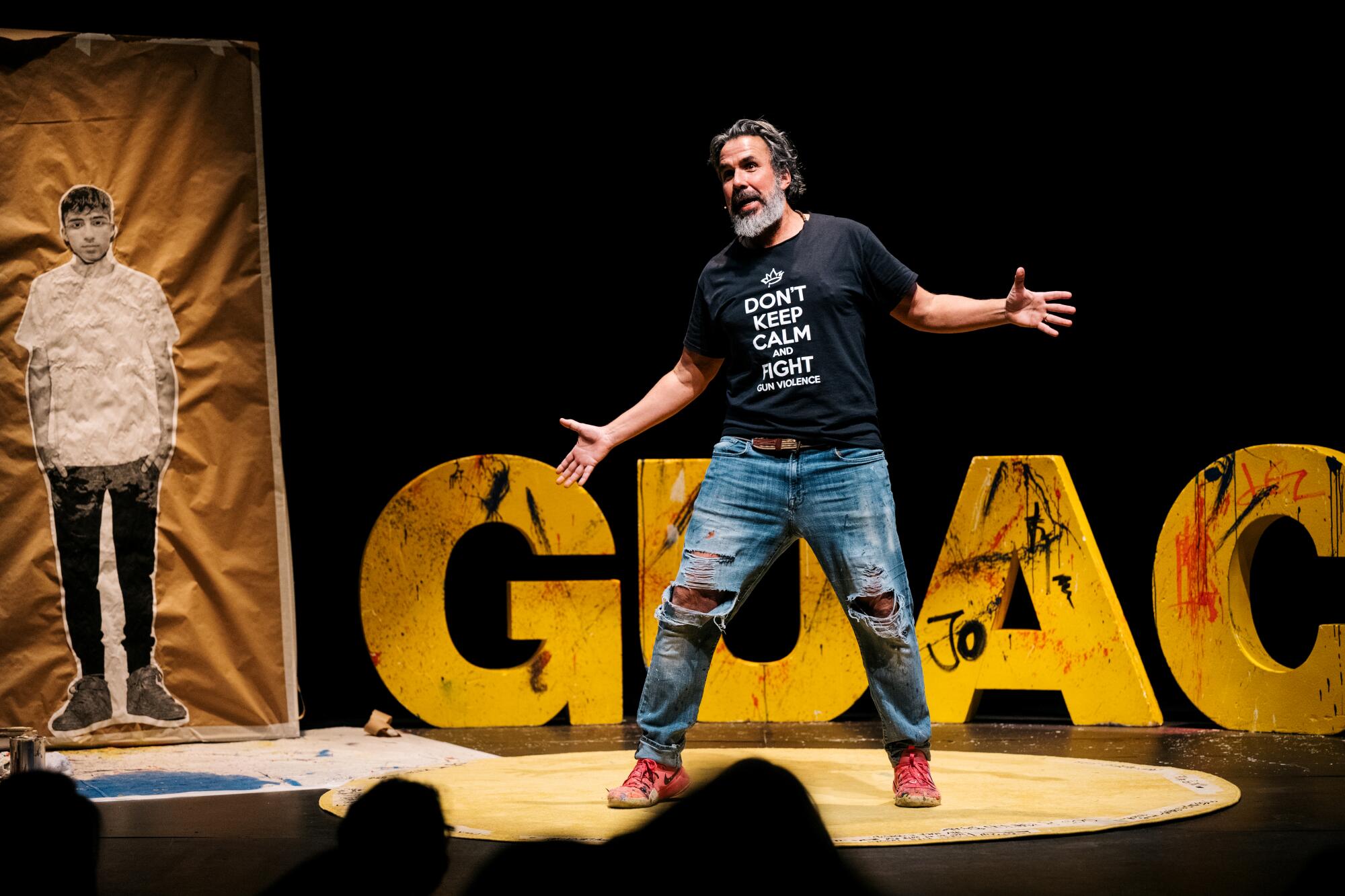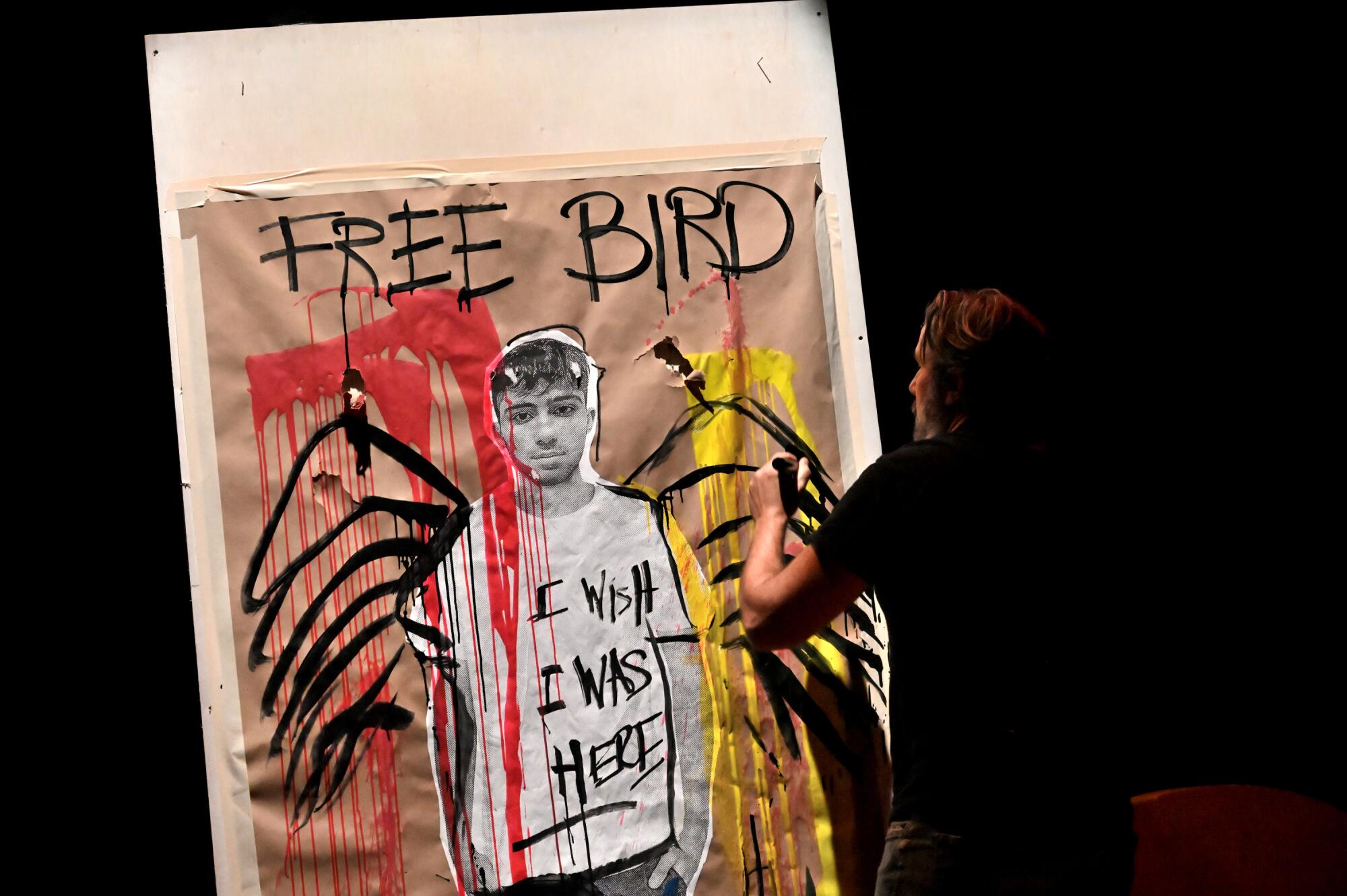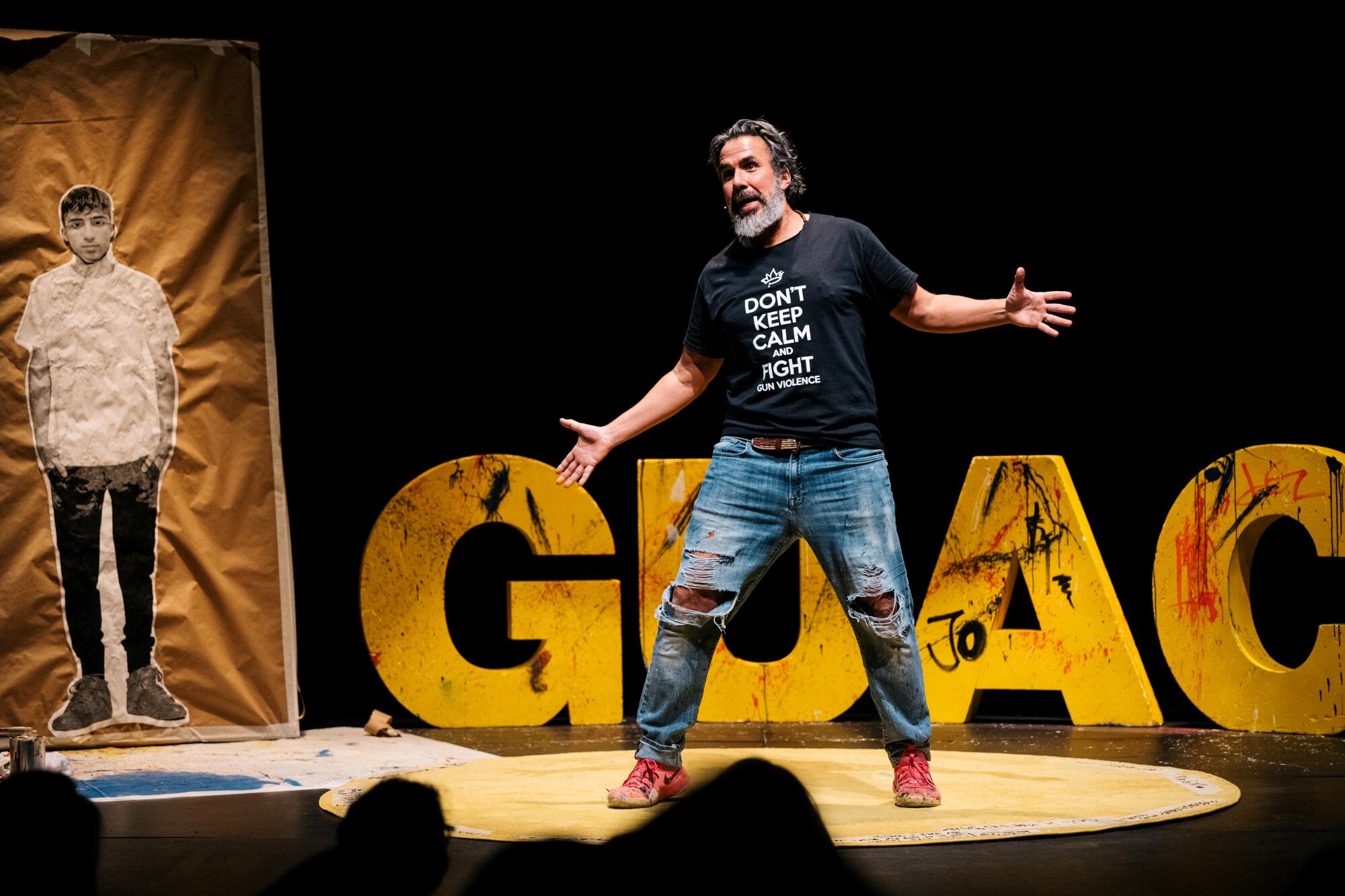‘Guac’ review: A heart-wrenching case for gun reform
The image of a grieving parent is not an uncommon sight on the dramatic stage. Euripides, whom Aristotle called “the most tragic of the poets,” returns to the figure of the grief-stricken parent in “Hecuba,” “Hippolytus” and “The Bacchae,” to cite just a few disparate examples of characters brought to their knees by the death of their child.
Shakespeare offers what has become the defining portrait of this inconsolable experience in “King Lear.” Cradling the lifeless body of his murdered daughter, Lear can do nothing but repeat the word “never” five times, the repetition driving home the irrevocable nature of loss.
In tragedy, the protagonist is often plagued by guilt for his own role, however inadvertent or inescapable, in the catastrophe that befell his loved one. Theseus in “Hippolytus” and Agave in “The Bacchae” both have reason to feel that they have blood on their hands. Lear, though “more sinned against than sinning,” recognizes only after it’s too late the error in judgment that led to the devastation from which there can be no return.
The difference with “Guac,” the one-man performance work at the Kirk Douglas Theatre, is that Manuel Oliver isn’t just playing a bereaved father. He is one.

Manuel Oliver in “Guac.”
(Cameron Whitman)
Oliver’s 17-year-old son, Joaquín, known as Guac to family and friends, was one of the 17 lives lost in 2018 at Marjory Stoneman Douglas High School in Parkland, Fla. The production, written and performed by Oliver, turns a parent’s grief into a theatrical work of activism.
Co-written by James Clements and directed by Michael Cotey, “Guac” has been sharing the story of Joaquín’s short but vividly lived life with audiences around the country. Oliver didn’t just love his son. He liked him. Guac was his best friend. He was also his trusted guide to American culture.
Immigrants from Venezuela, the family had made a new start in a country that Guac helped them feel was their home. To convey the meaning of Guac’s life, Oliver introduces his family members through a series of photo images he has crafted into artworks.
The last picture, and the one that remains staring at us throughout the performance, is of Guac. Oliver continues to enhance the portrait. While adding flourishes to the background and making adjustments to what his son is wearing, he tells us about the life they shared before it was tragically stolen.

Manuel Oliver works on a portrait of his late son in “Guac.”
(Donna F. Aceto)
The tragedy is overwhelmingly real. Oliver bears the weight of it by transforming his grief into fuel for activism. The performance makes the case for stricter gun law in America with the heartbreaking eloquence of a father whose life changed permanently after dropping his son off at school on a Valentine’s Day that started so promisingly.
What happened to Joaquín could happen to any of us, anytime, anywhere, in a country that has allowed its elected officials to deflect responsibility for their repeated failure to pass common sense gun legislation. While taking money from the NRA, these cynical politicians offer empty “thoughts and prayers” in place of meaningful reform. The result is that no one can go anywhere in public without eyeing the emergency exits and scanning the crowd for trouble.
Oliver isn’t a polished theatrical professional. He’s a dad, first and foremost. But it’s his comfortable ordinariness that allows him to make such a powerful connection with the audience. He’s onstage but could very well be exchanging a few neighborly words with us on our street.
Oliver summons his son by joyfully remembering his virtuosity on air guitar. Lynyrd Skynyrd’s “Free Bird” resounds throughout the Douglas while he enlivens the portrait with impassioned strokes. The words “I wish I was here” are added to Guac’s T-shirt, and it’s a sentiment we all devoutly, agonizingly share as Oliver brings his wife, Patricia, onto a stage that has urgently become an extension of our national reality.
In honor of Joaquín, the couple formed Change the Ref, an organization dedicated to raising awareness about mass shootings and empowering the next generation of activists through “creativity, activism, disruption and education.” “Guac” is a potent example of what can be done in the wake of a tragedy that can no longer be described as unthinkable.
‘Guac’
Where: Kirk Douglas Theatre, 9820 Washington Blvd., Culver City
When: 7:30 p.m. Tuesdays-Thursdays, 8 p.m. Fridays and Saturdays, 1 p.m. Sundays. No show on Halloween, Friday, Oct. 31. An additional show for closing night, 7 p.m. Sunday, Nov. 2
Tickets: Start at $34.50
Contact: CenterTheatreGroup.org
Running time: 1 hour, 40 minutes
